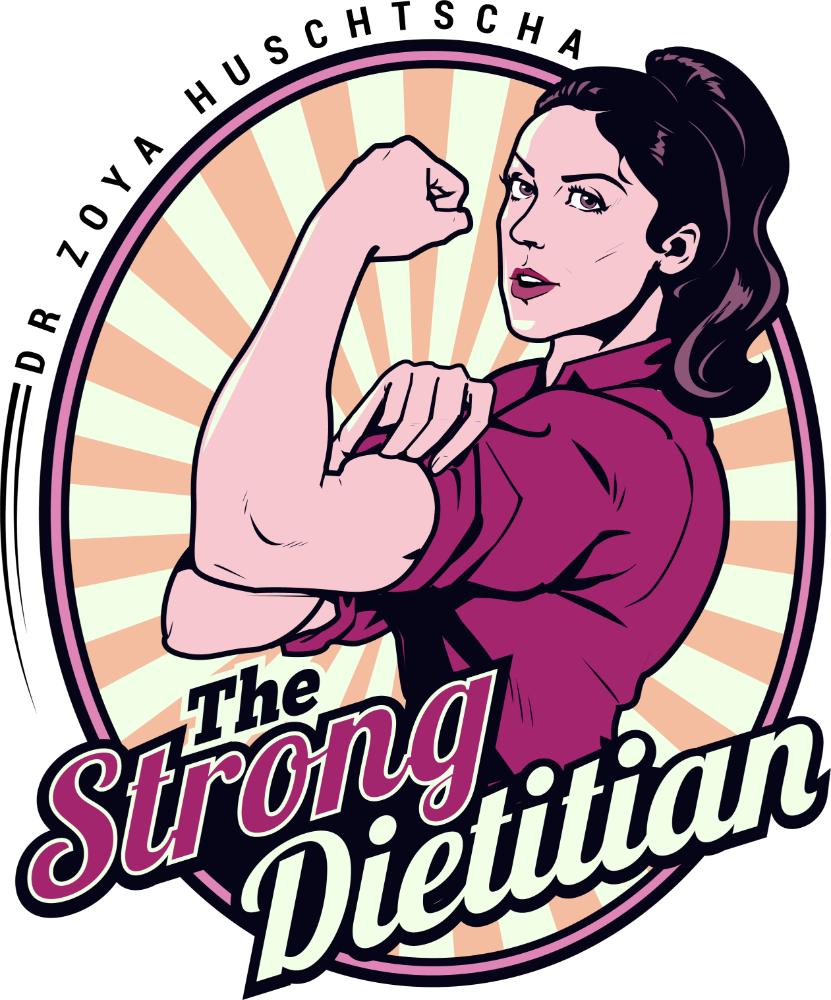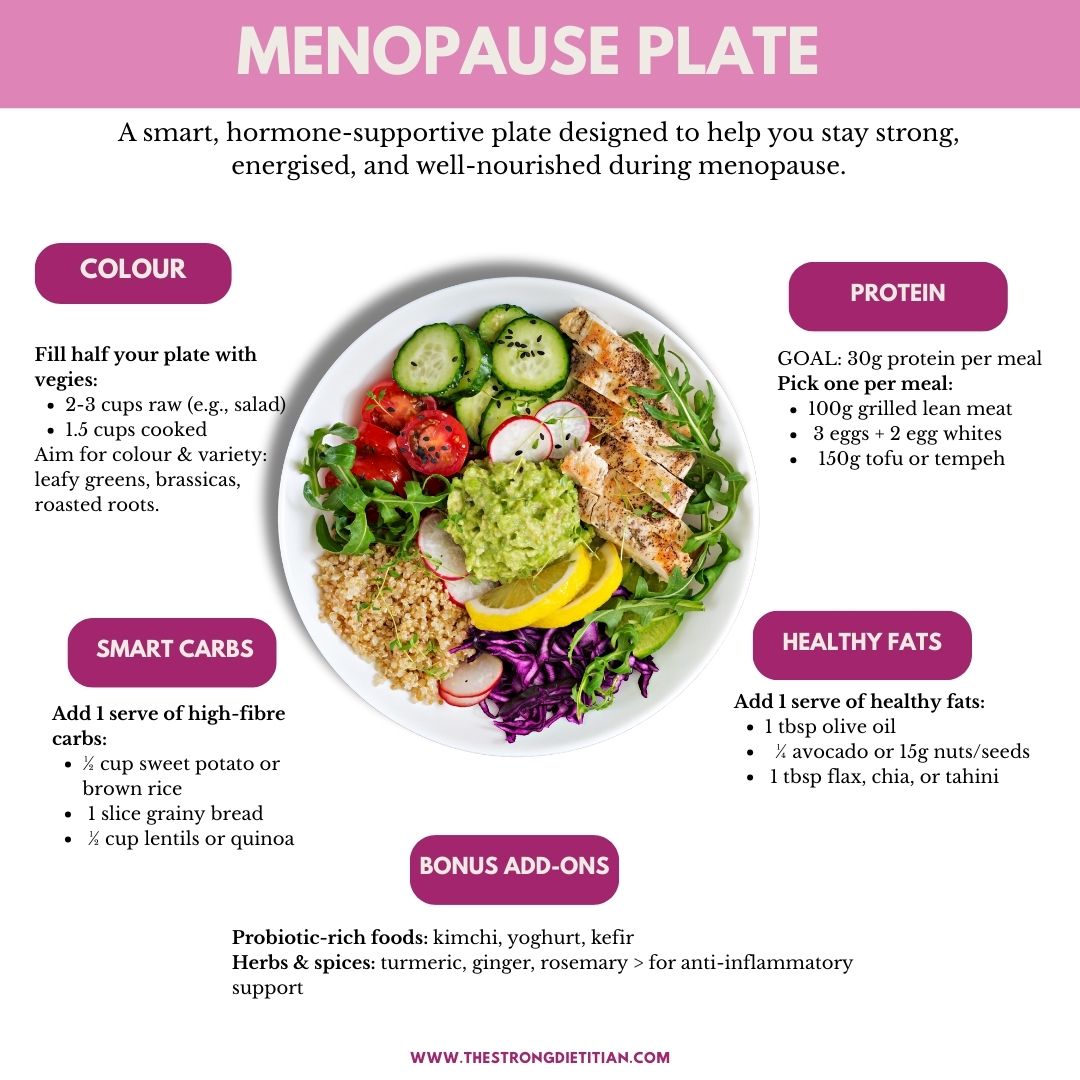Menopause Metabolism Reset: What Actually Works for Women 40+
May 04, 2025
A smarter take on the so-called “metabolism reset”
You’ve probably heard it before:
“Reset your metabolism in 3 days!”
“Burn belly fat with this one trick!”
Spoiler alert: there’s no magic button.
But that doesn’t mean you’re stuck either.
As we move through menopause, our metabolism does shift — largely due to changes in hormones (especially estrogen), stress levels, and how much we’re eating and moving. This transition can have a significant impact on how our bodies use and store energy, especially if we're not adjusting our nutrition and training accordingly.
For a deeper dive into supporting your body through this time, check out:
Menopause and Nutrition: How Active Women Can Support Their Bodies Through the Transition
What Actually Happens to Metabolism During Menopause?
Your resting metabolic rate (RMR) — the energy your body uses just to keep you alive — makes up 50–75% of your total daily energy output and is mostly driven by lean muscle mass.

- RMR drops by ~100 kcal/day, primarily due to loss of muscle mass (also called fat-free mass).
- Leisure-time physical activity declines by ~130 kcal/day.
- Combined, that’s a ~230 kcal/day drop in energy output — without a matching decrease in food intake.
This energy gap can lead to gradual fat gain, especially around the midsection (visceral fat), and increases the risk of metabolic and cardiovascular issues.
Learn more about protecting your heart health during this stage of life:
👉 How to Manage Cholesterol with Diet for Better Heart Health
3 Science-Backed Strategies to Support Your Metabolism
Here are 3 science-backed strategies — no gimmicks, no extremes:
Eat Enough — and Eat the Right Foods
During menopause, it’s tempting to eat less in hopes of controlling weight gain. But research shows that **chronic under-fuelling — especially with low protein, low fibre, and low fat diets — can actually worsen fatigue, muscle loss, and metabolic issues.
Instead of restriction, midlife nutrition should focus on supporting muscle mass, hormonal health, and metabolic flexibility.
How can you eat to help support your metabolisim during menopause?
Prioritise Protein after Menopause
As oestrogen declines, women experience accelerated loss of muscle mass (sarcopenia), which reduces resting energy expenditure.
Aiming for 1.2–1.6g protein/kg/day (e.g., ~90–120g/day for many women) can help maintain muscle, support weight management, and reduce frailty.
Aim: 30g protein per main meal (meat, eggs, tofu, dairy, legumes)
Smart Carbs and Fibre for Hormonal Balance
Fibre supports oestrogen clearance through the gut and helps regulate blood sugar and cholesterol — all of which are impacted post-menopause.
Wholegrains, legumes, and colourful veg also feed your gut microbiome, which plays a role in inflammation and weight regulation.
Aim: 25–30g fibre/day from wholegrains, veg, legumes, fruit
Why healthy Fats Help in Menopause
Healthy fats like omega-3s support brain function, joint health, and hormone production.
Low-fat diets may worsen hormonal symptoms and mood changes in perimenopausal women.
Include: olive oil, avocado, flaxseed, chia, nuts, oily fish
How to Build and Keep Your Muscle During Menopause
Muscle isn’t just about looking “toned” — it’s essential for:
- Burning energy at rest
- Managing blood sugar
- Supporting bones and joints
- Reducing injury risk and frailty
During and after menopause, muscle loss accelerates — unless you intervene.
The solution:
- Strength training 2–3 times per week
- Combine it with adequate protein intake and recovery
Even short, consistent sessions can make a massive difference in how you feel and function — mentally and physically.
Need support creating a training routine that suits your life stage? I help women build strong, confident bodies without burnout. Let’s chat.
Check out my published research in this area for some extra reading:
Support Your Hormones (Without the Drama)
Estrogen does more than regulate your menstrual cycle. It also:
- Influences fat storage patterns
- Helps cells use energy efficiently
- Impacts your motivation to move
When estrogen drops, you may notice:
- Increased fat around your belly
- Cravings, poor sleep, or mood swings
- Lower motivation and slower recovery
Ways to support your hormones naturally:
- Sleep 7–9 hours a night
- Manage stress with downtime and mindfulness
- Include hormone-friendly foods: seeds, legumes, nuts, oily fish
- Stay active in a way that feels good — walking, yoga, dancing, strength, etc.
Curious about hormone therapy? Here’s a trusted overview from Jean Hailes for Women’s Health
Final Thoughts
Menopause doesn’t mean your metabolism is broken — but it does mean your body is changing.
Instead of chasing detoxes or fad diets, come back to the science-backed basics:
✔️ Eat enough and the right foods
✔️ Build and keep your muscle
✔️ Support your hormones and recovery
Your body is still capable of strength, resilience, and change.
You just need a plan that works with your physiology — not against it.
Want more support or a personalised plan?
Let’s work together inside The Strong Dietitian Coaching Program.
Frequently Asked Questions:
Q: How can I boost my metabolism during menopause?
A: By focusing on lean protein, strength training, adequate calories, and sleep.
Q: Why is it harder to lose weight in menopause?
A: Hormonal changes, reduced muscle mass, and lifestyle shifts reduce energy expenditure.
Q: Does intermittent fasting help during menopause?
A: It can help some women, but chronic restriction may harm hormone balance and muscle retention.
Ready to take control of your health? Book a free discovery call today and let’s discuss how I can help you reach your wellness goals
Stay connected with news and updates!
Join our mailing list to receive the latest news and updates from our team.
Don't worry, your information will not be shared.
We hate SPAM. We will never sell your information, for any reason.




